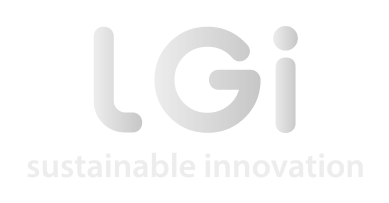LGI recently carried out an interview with Stéphane Bourg, Project Manager at the CEA science and technology institute for a circular economy of low carbon energies (ISEC) and Chairman of PROMETIA, on the subject of critical raw materials (CRMs). Read on to learn more about this particular challenge which is becoming more and more urgent.
1. PROMETIA has been working on the issue of critical raw materials (CRMs) in recent years. Could you explain what these are and how PROMETIA is acting on them?
PROMETIA addresses all the scientific and technical issues related to mineral processing and extractive metallurgy in order to produce raw materials from primary and secondary resources. In recent years there has been a clear focus on the raw materials involved in the energy transition and the electric mobility such as rare earths (used in permanent magnets) or nickel, cobalt, manganese, and lithium used in batteries. Some of these metals are identified as critical, such as the rare earths, cobalt, and lithium. Globally PROMETIA does not only focus on the critical raw materials but also includes other resources.
2. What services/products do you offer today on the subject of CRMs?
PROMETIA promotes networking between its members in order for them find the best option for collaborative R&D&I, either through bilateral exchanges or through collaborative projects that can be submitted to Horizon Europe, EIT-RawMaterials, or ERAMIN-3 for example. In addition, PROMETIA organises informational and scientific seminars to allow its members to keep up to date and know each other better. PROMETIA invests also in the “young generation” by proposing and supporting transnational access for students and young technicians/engineers. It also organises a field trip every year (called the Tech Tour) that allows the attendees to visit industrial and R&D sites and also to create/initiate their own network. When relevant, PROMETIA can also help its members by organising open innovation challenges. Last but not least, PROMETIA also facilitates interaction between pilot facilities and promotes their piloting capabilities through the METNET group.
3. Can you tell us a few words about your collaboration with LGI on this subject?
LGI has been associated with the PROMETIA initiative since the very beginning in 2014, first by supporting us at establishing the legal structure and a few months later, to build the MSP-REFRAM project that was involving all the PROMETIA partners at that time (about twenty partners). In parallel to its role of secretariat, LGI has also been involved in several initiatives to contribute to value chain analyses, market analyses, and communication actions for the public. In particular, during the SCRREEN project, LGI worked with Guillaume Pitron to define and design twelve visuals to explain the issues and stakes related to CRM.
4. Working with CRMs involves many different aspects, such as environmental and geopolitical issues. Could you expand on these different dimensions of CRMs?
Indeed, to be classified as a CRM, a raw material must combine a high economic importance and a high supply risk. Both aspects are related to environmental and geopolitical issues, often at a much higher level than to its abundance or industrial availability. The recent Russia-Ukraine crisis has reminded us how some of our supply chains are fragile. When developing new supply chain, all of these parameters should be integrated. Which resource (primary or secondary) to use, how can we access to the resource, which treatment and production processes should be employed, where to develop the industries… as many parameters from an economic, environmental, and social point of view should be considered.
Today the lithium we have in our batteries in Europe have travelled more than 30 000 kilometres before we buy an electric car. However, we could produce our own lithium in Europe…this deserves a comprehensive evaluation of the value chain, doesn’t it?
Find out more about PROMETIA and its activities by clicking here!




FOLLOW US